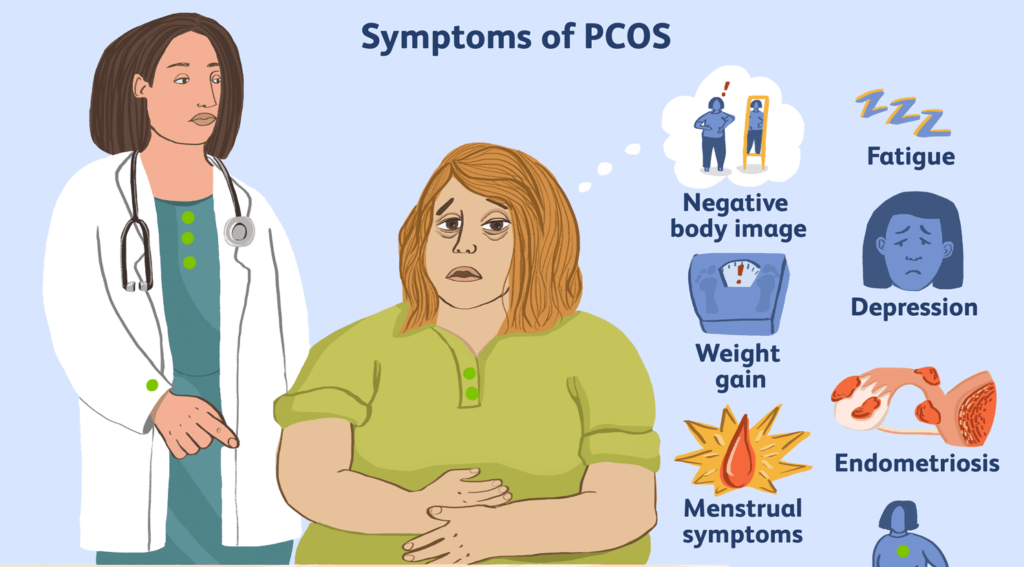POLYCYSTIC OVARIAN SYNDROME -PCOS (GYNECOLOGIC DISORDERS)
Polycystic ovarian syndrome (PCOS)is a common endocrine disorder of unknown etiology affecting 6-10 percent of reproductive age women.PCOS is characterised by cystic ovaries and hyper androgenism. It is also associated with obesity and hirsutism as well as increase risk of diabetes and cardio disease and metabolic syndrome. Untreated PCOS is a risk factor for cardio vascular disease.
To diagnose it we can identify by androgen production,polycystic ovaries and ovulatory dysfunction in adult women.
Patients may also show sign of insulin resistent and hyper insulinemia and these women are increased risk for diabetes and metabolic syndrome.

DIAGNOSIS
- Anovulation is may be occur due to Premature ovarian failure (high FSH and LH).
- Hyperthyroidism or Hypothyroidism
- Discontinuation of hormonal contraceptive.
- Pituitary adenoma with elevated prolactin.
Women or girl suspicious to PCOS , serum LH,FSH,PROLACTIN, and thyroid profile must be checked.
TREATMENT
Weight loss ,Exercise and treatment of unresolved metabolic disorders are important in preventing cardiovascular disease in PCOS women.
Women with PCOS should have regular monitoring of Glucose and Lipid profiles.
In adolescent patient with PCOS, hormonal contraceptives and Metformin are treatment options.
For metabolic and glucose abnormalities helpful drug is METFORMIN and it can helpful in menstrual functioning. For seeking pregnancy and remain unovulatory, CLOMIPHENE or other drugs can be used for ovarian stimulation and it is first line treatment for infertility.If induction failed and ovulation does not occur then low dose of GONADOTROPINS will be given.
Patients having PCOS should avoid these food like Gluten, High Fat Dairy Items, Packaged Juices, Bakery and Starchy Foods and also minimise coffee intake.
For Informational purpose only. Consult your Physician for advice.